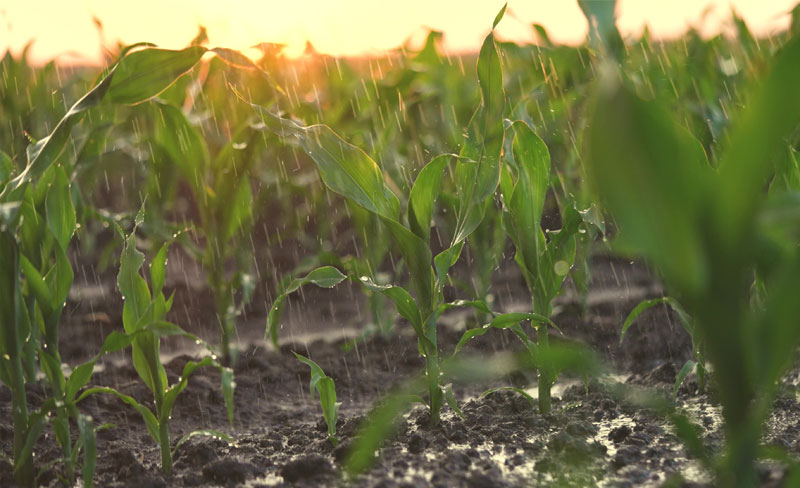Working in the Rain
The Importance of Rain for Soil Nutrients and Composting

Rain is a natural phenomenon that plays a crucial role in the health of the soil and in the composting processes. Not only does it provide the water necessary for plants, but it also facilitates a series of critical processes for soil fertility and environmental well-being.
Rain acts as a vehicle for transporting vital nutrients to plant roots. By dissolving the nutrients present in the soil, water allows for more efficient absorption by vegetation. This is crucial for the healthy and vigorous growth of plants, which depend on proper nutrition for their development.
Rain is Essential for Plant Health and Growth
Additionally, the moisture provided by rain is essential for the decomposition of organic matter. The microorganisms responsible for this process need water to live and work optimally. Without a sufficient amount of water, the decomposition process slows significantly, negatively affecting soil fertility.
Decomposer microorganisms thrive in moist environments. Rain keeps these microorganisms active, improving the rate of organic matter decomposition into compost, which subsequently enriches the soil. Moreover, moderate rain can help redistribute nutrients within the soil, creating a surface that is more fertile and uniformly rich in nutrients.
What are the Benefits of Working the Soil in the Rain?
Though it may seem counterintuitive, working the soil while it rains offers several practical benefits for farmers and gardeners. First, the moisture from the rain softens the soil, making it easier to work. Tasks like digging, planting, and transplanting become more manageable as the soil is less compacted and easier to handle.
Additionally, working the soil during rain allows fertilizers and other added nutrients to dissolve quickly and distribute more evenly, reaching plant roots more easily. Dust is also reduced, improving respiratory health for those performing these tasks.
Another advantage is that plants recently transplanted or seeded during rain have a better chance of establishing themselves, as the moisture encourages good adhesion of the soil to the roots. Furthermore, rain provides the necessary water for newly planted crops, reducing the risk of dehydration and increasing the chances of successful germination.
In summary, rain is fundamental for maintaining and enriching the soil through nutrient transport and support for composting processes. Working the soil in the rain may seem like a challenging task, but it offers multiple benefits that can improve agricultural efficiency and plant health. Thus, rain proves to be an indispensable ally for life in the countryside and gardens.










